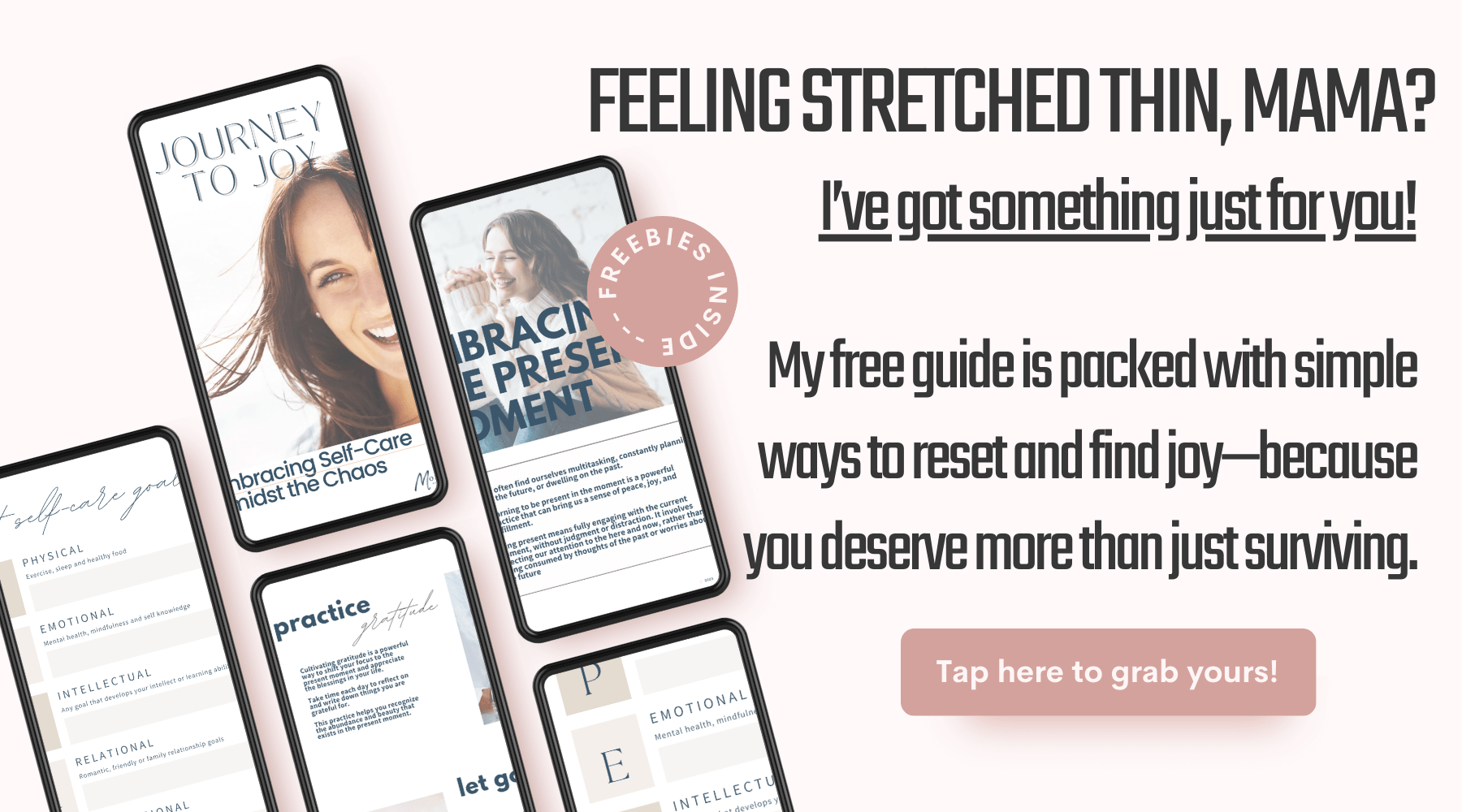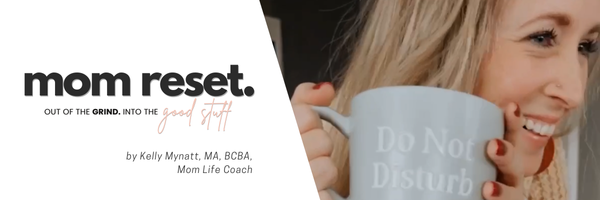From Normal Mom Worries to Anxiety: A Behavioral Specialist’s Guide to Knowing the Difference
It’s 3am. I’m standing over my son’s crib, hand on his back, counting his breaths… again. As a behavioral specialist, I know this is textbook anxiety behavior. As a mom of four (including twins!), I’m doing it anyway.
That’s the thing about mom worries - even when we know better, we feel them deeply. But there’s a difference between normal mom concerns and the kind that need professional support. After guiding a lot of moms through this exact journey, I’ve learned where that line lives.
The Universal Mom Worry Experience
Let me share something that might sound familiar. Last week, one of my clients (let’s call her Emma) came to me almost in tears. Her 2-year-old wasn’t talking as much as her neighbor’s kid, and she’d spent three sleepless nights convinced she’d somehow failed her child. “I know I’m probably overreacting,” she said, “but I can’t stop thinking about it.”
That right there? That’s the perfect example of how normal mom worries can start feeling like anxiety. But here’s what you need to know: Some worry is not just normal - it’s healthy. It’s what keeps us checking car seat straps and cutting grapes in half. The question isn’t whether you worry (we all do), it’s whether your worries are running the show.
The Hidden Cost of Constant Worry
Now, I want to be crystal clear about something: This isn’t another thing to add to your worry list. You don’t need to stress about stressing! But here’s what I’ve learned from working with a lot of moms: When we’re caught in constant worry, we miss out on the very moments we’re trying so hard to perfect.
It shows up in subtle ways:
That family photo you can’t enjoy because you’re focused on the mess in the background
The playdate where you’re so busy analyzing your child’s social skills that you miss their belly laughs
Those bedtime snuggles interrupted by mental checklists and tomorrow’s worries
The good news? You’re not stuck here. This isn’t about adding more to your plate - it’s about lightening the load you’re already carrying. I’ve watched countless moms transform their relationship with worry, one small step at a time.
Normal Mom Worries Look Like:
That pit-in-your-stomach feeling when your child first goes down the big slide
Double-checking the baby monitor before bed
Wondering if your kid’s picky eating is “just a phase”
Googling developmental milestones (occasionally!)
Texting your mom friends about normal toddler behavior
These worries come and go. They might keep you up for a night, but they don’t control your days. They might prompt a pediatrician question, but they don’t stop you from enjoying your child.
Building Your Mom Confidence Toolkit
Through years of coaching moms, I’ve discovered that confidence isn’t about eliminating worry - it’s about knowing how to handle it when it shows up. Here are a few starter tools I share with my clients:
The Pause Practice:
When worry strikes, pause and ask: “Is this a normal mom concern, or is my worry-brain taking over?” Just this simple question can help you regain perspective. (In my coaching programs, we dive deep into more tools like this that help you distinguish between helpful and harmful worry.)
The Reality Check:
Write down your worry, then write what’s actually happening right now. Often, you’ll find your mind is living in “what if” land while reality is much calmer. (This is just the beginning - my clients learn a complete system for managing those 3am thoughts.)
The Permission Slip:
Give yourself permission to be an imperfect mom. Your kids don’t need perfection - they need presence. (We explore this concept extensively in my 1:1 coaching sessions, where moms learn to build lasting confidence.)
When Worries Become Anxiety
As both a behavioral specialist and a mom who’s checked her kids’ breathing more times than I can count, I want to be crystal clear about when worries need professional attention.
Signs That Need Clinical Support (Licensed Mental Health Professional):
Intrusive thoughts that won’t go away (beyond normal mom worries)
Persistent feelings of doom or that something terrible will happen
Past trauma significantly affecting your parenting decisions
Panic attacks or severe physical anxiety symptoms
Thoughts of harm to yourself or others
Depression that doesn’t lift
Inability to leave your child with trusted caregivers due to severe anxiety
These experiences require and deserve professional clinical support. They’re not a reflection of your mothering - they’re signs your brain needs specialized care, just like you’d seek a specialist for any other health concern.
Signs That Coaching Can Help:
Overthinking everyday parenting decisions
Feeling overwhelmed by normal developmental stages
Struggling to trust your mom intuition
Constant comparison to other moms
Difficulty setting boundaries with family/friends about parenting choices
Regular (but manageable) worry about your kids’ future
Need for support in creating balanced thinking patterns
Through coaching, we can work together to develop practical strategies, build confidence in your parenting decisions, and create a healthier relationship with normal mom worries.
Not Sure What You Need?
Listen, I get it. When you’re in the thick of worry, it can be hard to tell what level of support you need. Sometimes we minimize our struggles (“other moms handle this fine…”), and sometimes we catastrophize (“I must need serious help because I can’t stop checking the baby monitor”).
Here’s what I want you to know: You don’t have to figure this out alone. As a mom who’s been there and a behavioral specialist who’s guided a lot of women through this exact confusion, I can help you get clear on your next best step.
Let’s chat, mom to mom. In a free 20-minute call, we can:
Get clear on what you’re experiencing
Determine whether coaching or counseling would serve you better
Connect you with the right resources for your situation
Create an immediate action plan for support
Because sometimes the bravest thing we can do is just raise our hand and say “I need help figuring this out.”


















